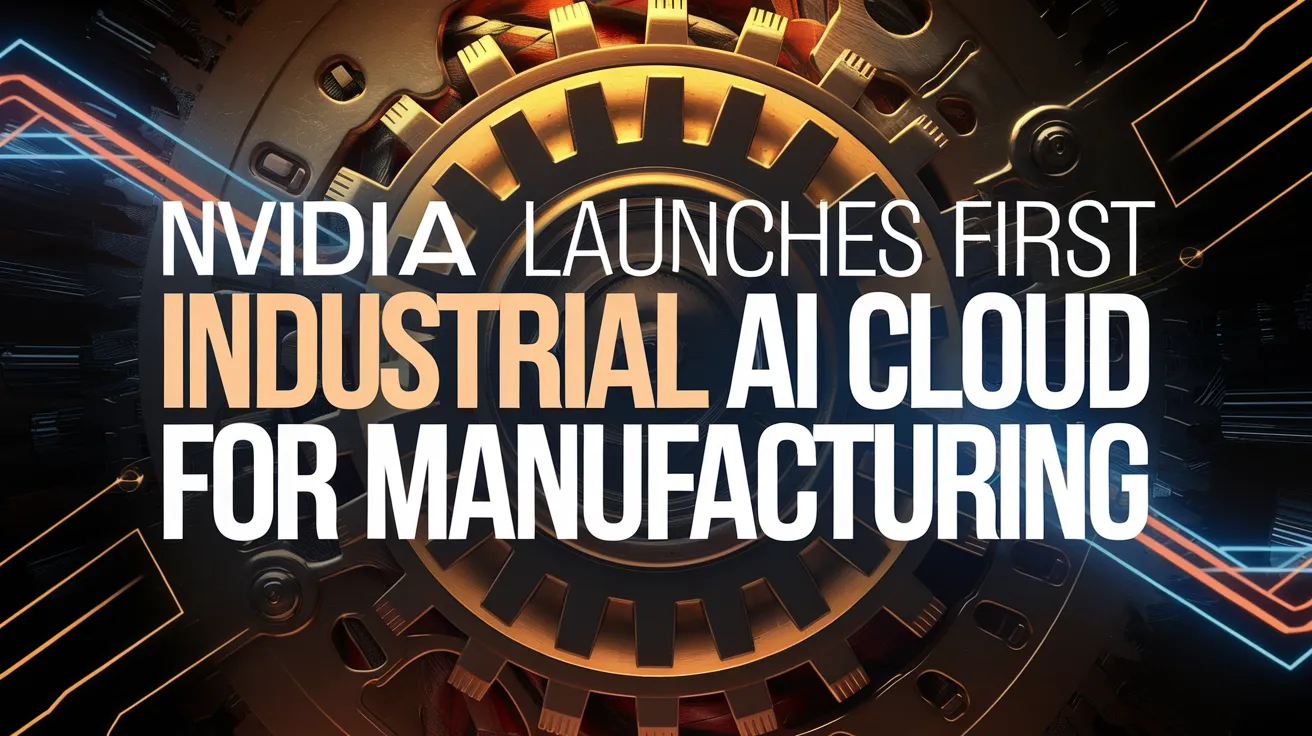NVIDIA Launches First Industrial AI Cloud for Manufacturing

NVIDIA has announced its ambitious initiative to build the world’s first industrial AI cloud, aimed specifically at boosting manufacturing capabilities across Europe. Dubbed the AI factory, this facility will be based in Germany and feature an impressive array of 10,000 GPUs, including NVIDIA DGX™ B200 systems and NVIDIA RTX PRO™ Servers. This significant investment is engineered to empower Europe’s industrial leaders by accelerating manufacturing applications ranging from design and engineering to factory digital twins and robotics.
Among the companies set to benefit from this technological leap are major European manufacturers such as BMW Group, Maserati, Mercedes-Benz, and Schaeffler. These companies are reworking their end-to-end product lifecycles with NVIDIA-accelerated applications provided by industry leaders such as Ansys, Cadence, and Siemens. Jensen Huang, founder and CEO of NVIDIA, highlighted the shift, stating, “In the era of AI, every manufacturer needs two factories: one for making things, and one for creating the intelligence that powers them.” The launch of this infrastructure is poised to cultivate a new generation of simulation-first, AI-driven manufacturing.
The AI factory will be equipped to support industrial AI workloads, allowing European manufacturers to leverage advanced AI tools effectively. The project will utilize NVIDIA’s CUDA-X™ libraries and encompass NVIDIA Omniverse™-accelerated workloads, ensuring a broad application across various manufacturing processes. The AI factory follows the guidelines outlined in the NVIDIA Omniverse Blueprint for AI factory design, integrating Cadence’s Reality Digital Twin Platform to simulate and optimize the factory in a virtual environment, thus ensuring a smarter, more efficient manufacturing process.
In addition to building the infrastructure, NVIDIA has solidified partnerships with independent software vendors like Ansys, Cadence, and Siemens to further accelerate their product offerings using NVIDIA’s pioneering technologies. These collaborations are expected to enhance the capabilities of each partner’s software portfolio, promoting digitalization in the manufacturing sector.
Siemens, in particular, has expanded its collaboration with NVIDIA to facilitate the factory of the future. By combining Siemens’ automation expertise with NVIDIA’s accelerated computing, manufacturers can optimize performance, increase productivity, and advance sustainability goals through greater digitalization. For instance, Maserati is now utilizing Siemens solutions powered by NVIDIA’s API to visualize airflow efficiently over car bodies, enhancing their manufacturing process.
Furthermore, Ansys is integrating NVIDIA technology into its high-fidelity fluid simulation software, allowing companies like Volvo Cars to significantly accelerate their simulation processes. The combination of NVIDIA GPUs and Ansys’s software has enabled Volvo to achieve a remarkable 2.5 times faster simulation of fluid dynamics for its electric vehicle design. Companies like Leonardo are also leveraging this technology further to streamline designs and simulations across their aviation projects.
With companies like Schaeffler adopting NVIDIA’s physical AI stack for digital factory planning and automation across its global operations, it’s clear that European manufacturing is on the cusp of a significant transformation. Schaeffler’s collaboration with partners such as Microsoft Azure and Wandelbots illustrates the growing trend towards integrating AI technology in manufacturing workflows.
BMW Group is making strides in digital twin technologies that enhance real-time collaboration for production planning, while Mercedes-Benz is optimizing its factory assembly lines through virtual designs and simulations using the Omniverse platform. The collective efforts of these firms emphasize a commitment to reinvention, ensuring that they remain at the forefront of technological advancement in the face of growing industry challenges.
With the establishment of NVIDIA’s industrial AI cloud, the European manufacturing sector is poised to evolve dramatically, making way for unprecedented levels of efficiency, productivity, and innovation. This initiative not only symbolizes a technological leap forward but also underscores the vital role of AI in shaping the future of manufacturing.
For further details, visit NVIDIA’s official announcement.